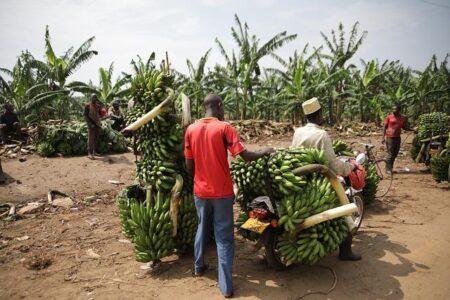Germany stands at a pivotal crossroads as fresh economic data is set to reveal whether its recent recovery has the resilience to last. Key indicators will show if growth can withstand the persistent global uncertainties, Bloomberg reports
Browsing: economic outlook
Japan’s fragile Q4 economic rebound presents a crucial challenge for new leader Takaichi, as the nation grapples with slow growth and rising external pressures, Reuters reports
Oxford Economics unveils an exciting new report that charts the future of the UK industrial strategy, spotlighting prime sector opportunities and regional growth hotspots set to fuel post-pandemic economic recovery and spark innovation
Germany sees a sharp rise in orders, signaling a robust economic rebound, Deutsche Bank reports. The construction sector is poised for growth, boosting optimism amid ongoing recovery efforts.
Japan finds itself at a crucial economic crossroads, where years of slow growth, an aging population, and shifting global dynamics are compelling policymakers to take bold steps to revive the nation’s economic energy
As pivotal elections unfold from Japan to Brazil in 2024, global markets brace for potential upheaval. The outcomes promise to ignite significant volatility, reshaping investor confidence and influencing economic policies worldwide
UK business confidence is faltering as growing concerns about the broader economic outlook take center stage, Reuters reports. Companies highlight inflation and Brexit uncertainties as key challenges dampening optimism across various industries
The Bank of Canada is holding its key interest rate steady, signaling confidence in stable inflation and a cautious path toward economic growth. TD analysts believe this decision masterfully balances fostering recovery with managing global uncertainties
Brazil’s Central Bank kept its benchmark interest rate steady, signaling a potential cut in March as inflation pressures start to ease. This strategic pause aims to boost growth while maintaining stable economic conditions
Argentina’s country risk has dropped to its lowest level since 2018, driven by a wave of investor optimism sparked by bold economic reforms and easing inflation. This encouraging development points to a more promising financial future for the nation
Retail sales soared in December, shattering months of stagnation, according to FocusEconomics. This impressive rebound signals a renewed surge of consumer confidence as we welcome the new year
The IMF has raised India’s FY26 growth forecast to a striking 7.3%, fueled by strong domestic demand. However, the Fund warns that global uncertainties could slow growth in the coming two years, Reuters reports
The World Bank has lowered Argentina’s 2026 growth forecast from 4.6% to 4%, highlighting increasing economic challenges and external pressures. This revision reflects ongoing concerns about the country’s path to recovery
ARGT, the ETF tracking Argentine equities, is sparking growing excitement for 2026 despite ongoing economic challenges. Investors are navigating inflation worries and reform initiatives with cautious optimism as Argentina prepares for a promising growth surge on the NYSEARCA
The Bank of Japan is signaling a bold shift from its ultra-loose monetary policy, hinting at possible rate hikes as the yen weakens and inflation concerns mount. Markets are buzzing with anticipation, closely watching for policy moves and their potential impact on the economy
Economists anticipate the Bank of Canada will keep interest rates steady in 2026, focusing on taming inflation amid a cautious economic outlook. Market experts predict gradual policy adjustments designed to support steady, sustainable growth
Japan’s FY2025 growth forecast has been upgraded to an impressive 1.1%, driven by a vibrant surge in consumer spending and a strong boost in investment, according to a report by Japan Wire via KYODO NEWS
Germany is heading toward its largest budget deficit since reunification, the Bundesbank has warned. Skyrocketing energy costs and escalating economic challenges are driving this widening gap, sparking concerns over the nation’s fiscal health
Deloitte’s November 2025 report highlights Brazil’s remarkable economic comeback, driven by strong commodity exports and rising domestic demand. Yet, inflation pressures and political uncertainties remain key hurdles ahead
Bank of Canada Governor Tiff Macklem Carney cautions that a fresh U.S.-Canada trade agreement is far from imminent, highlighting ongoing economic and political challenges, reports The Globe and Mail



















